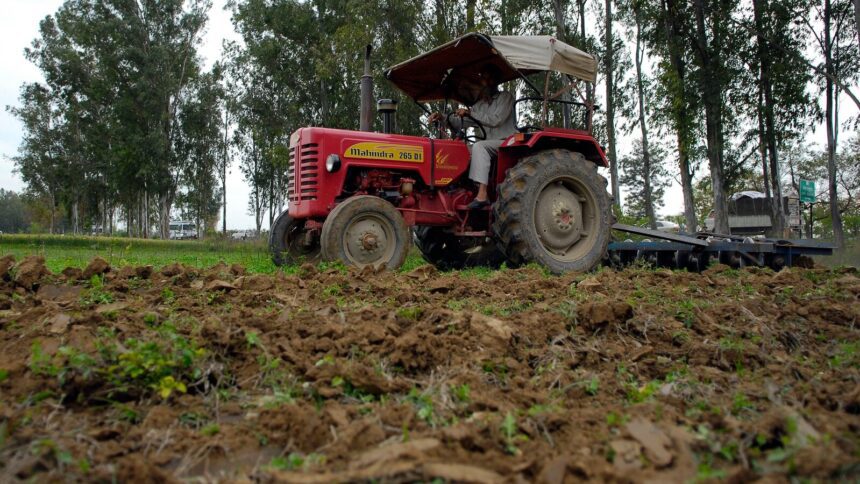Mandatory Waterproofing Test for Tractors in Wetland Cultivation: A Step Towards Modernizing Indian Agriculture
Introduction
As India gears up for its kharif crop season, significant changes are on the horizon aimed at enhancing efficiency in agricultural practices. The government has announced that a waterproofing test will now be mandatory for tractors used in wetland cultivation, particularly for paddy farming, a step that underscores the need for advanced agricultural technology in the nation.
Why the Waterproofing Test?
The waterproofing test aims to evaluate a tractor’s capacity to function efficiently in wet, challenging conditions typical of paddy fields, where puddling—plowing fields when wet to foster a soft, muddy layer—is essential. This initiative not only seeks to prevent damage to tractors from water ingress but also aims to boost the productivity of farmers engaged in such cultivation activities.
C.R. Mehta, director at the Indian Council of Agricultural Research’s (ICAR) Central Institute of Agricultural Engineering, clarified how the test works. It involves driving the tractor through water at a specified depth for several hours to inspect for leaks in critical components, such as axle housing. Effective seals are paramount in ensuring the longevity and reliability of the tractors, making this testing pivotal for farmers relying on them in challenging farming conditions.
Aligning with Global Standards
New guidelines crafted by the Bureau of Indian Standards (BIS) align the waterproofing test with international benchmarks, such as the OECD Code 2, which pertains to comprehensive testing for tractors. This move reflects a broader trend towards modernizing Indian agricultural equipment and harmonizing domestic practices with global advancements in the agricultural sector.
Current Agricultural Landscape
The introduction of this test comes at a time when the Indian tractor market is expected to expand significantly, projected to increase from $6 billion currently to $10.4 billion by 2027. However, the ongoing fiscal year (FY24) has seen an 8% decline in tractor sales due to erratic weather patterns that have affected crop sowing and harvest timings. Mandatory waterproof testing is expected to enhance tractor reliability, thereby encouraging farmer confidence and potentially reversing this downward trend in sales.
Implications for Kharif Cultivation
Recent data indicates a promising outlook for kharif crops, with acreage increasing by 1.87% year-on-year, amounting to approximately 110.85 million hectares as of September 27. With favorable monsoon rains aiding in crop sowing, India’s agricultural sector looks poised for a record production year.
According to first advance estimates released by the agriculture ministry, total summer-sown foodgrain production for the upcoming year is projected to reach 164.7 million tonnes, marking a 6% increase from the previous year. This highlights the significance of adopting and adapting advanced agricultural practices such as the waterproofing test for tractors to facilitate higher outputs.
Conclusion
The mandatory waterproofing test for tractors signifies a critical step towards modernizing Indian agriculture. By ensuring that agricultural equipment can withstand the demanding conditions of wetland farming, the government aims to enhance overall productivity while safeguarding farmers’ investments. As India looks to capitalize on favorable sowing conditions this kharif season, such proactive measures could prove essential in sustaining the momentum towards a more robust agricultural future.
The changes initiated not only promise to improve farmer incomes by increasing the efficiency of equipment but also reflect a broader commitment to adopting innovative practices that align with global agricultural standards. This strategic approach could pave the way for significant advancements across the agricultural landscape in India, ensuring food security and economic growth for years to come.










